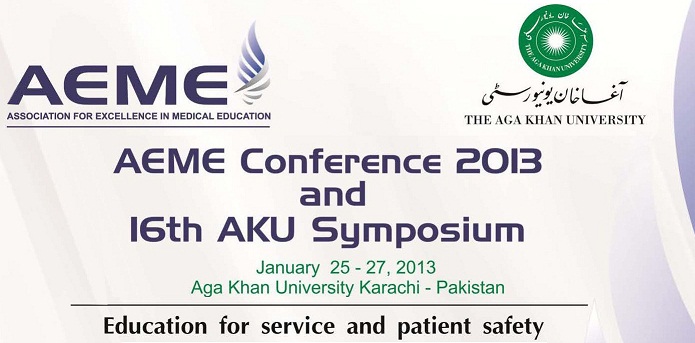Day 1 : Poster Presentations (Theme: Patient Safety)
Patients at the hands of medical errors: a critical review in the context of Pakistan
Location
Auditorium Pond Side
Start Date
26-1-2013 10:30 AM
Abstract
Introduction: World has suffered enormously on the hands of medical errors. Developed countries are victims of complexity of medication use and non-appropriate processes and systems and the developing countries have been subjected to lack of health human resource and a huge burden of disease. Not only the individual care giver’s role is important, incompetency at the system level is also responsible for compromised patient safety. Among patients, extreme of ages suffer the most from the harm while seeking care. World Health Organisation has taken serious steps to address the issue and has formed World Alliance for Patient Safety. It is working with the states and especially with the developing countries to facilitate the process of overall quality of the system in order to improve patient’s care. Pakistan is a Lower Income Country where medical errors are noted as tip of the iceberg of the problem. Unnecessary injections and interventional therapeutics are increasingly adding up infection rates among the patients who seek care in the country. The available published literature in Pakistan and abroad shows some information on deaths due to inappropriate anaesthesia, surgical procedures, nosocomial infections and medication. There is a lack of comprehensive picture of iatrogenic morbidity and mortality due to medical errors, and there is an absence of a Patient Safety Law which may protect patient’s rights for treatment and compensation, in Pakistan.
Patients at the hands of medical errors: a critical review in the context of Pakistan
Auditorium Pond Side
Introduction: World has suffered enormously on the hands of medical errors. Developed countries are victims of complexity of medication use and non-appropriate processes and systems and the developing countries have been subjected to lack of health human resource and a huge burden of disease. Not only the individual care giver’s role is important, incompetency at the system level is also responsible for compromised patient safety. Among patients, extreme of ages suffer the most from the harm while seeking care. World Health Organisation has taken serious steps to address the issue and has formed World Alliance for Patient Safety. It is working with the states and especially with the developing countries to facilitate the process of overall quality of the system in order to improve patient’s care. Pakistan is a Lower Income Country where medical errors are noted as tip of the iceberg of the problem. Unnecessary injections and interventional therapeutics are increasingly adding up infection rates among the patients who seek care in the country. The available published literature in Pakistan and abroad shows some information on deaths due to inappropriate anaesthesia, surgical procedures, nosocomial infections and medication. There is a lack of comprehensive picture of iatrogenic morbidity and mortality due to medical errors, and there is an absence of a Patient Safety Law which may protect patient’s rights for treatment and compensation, in Pakistan.

